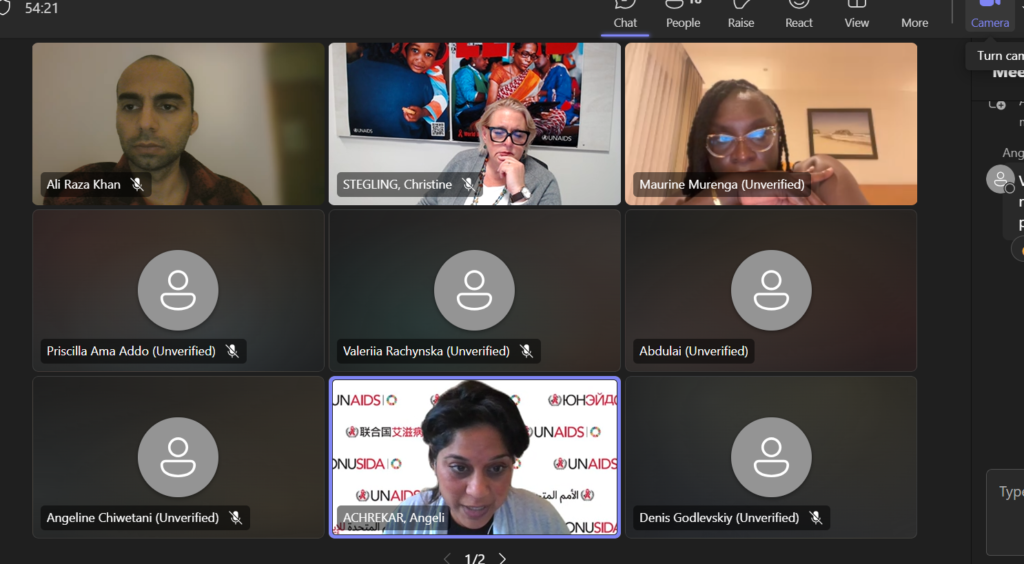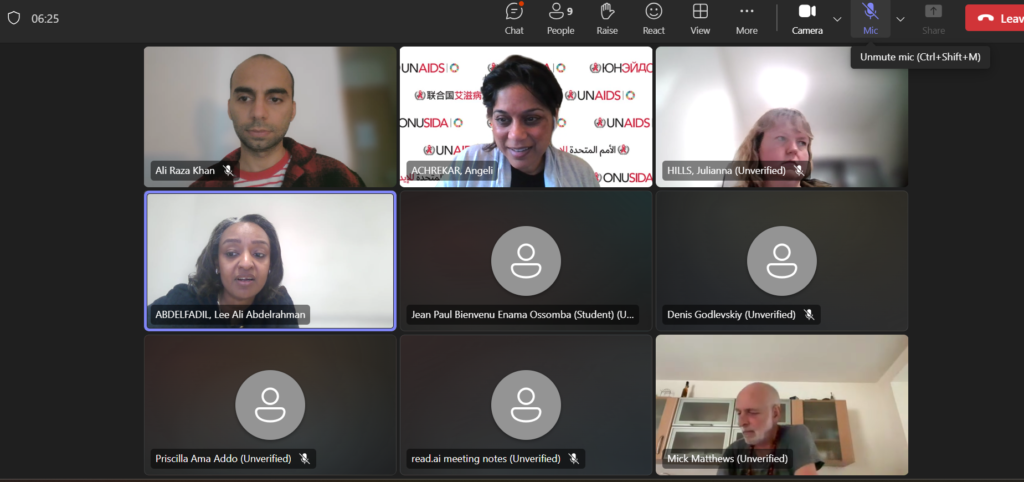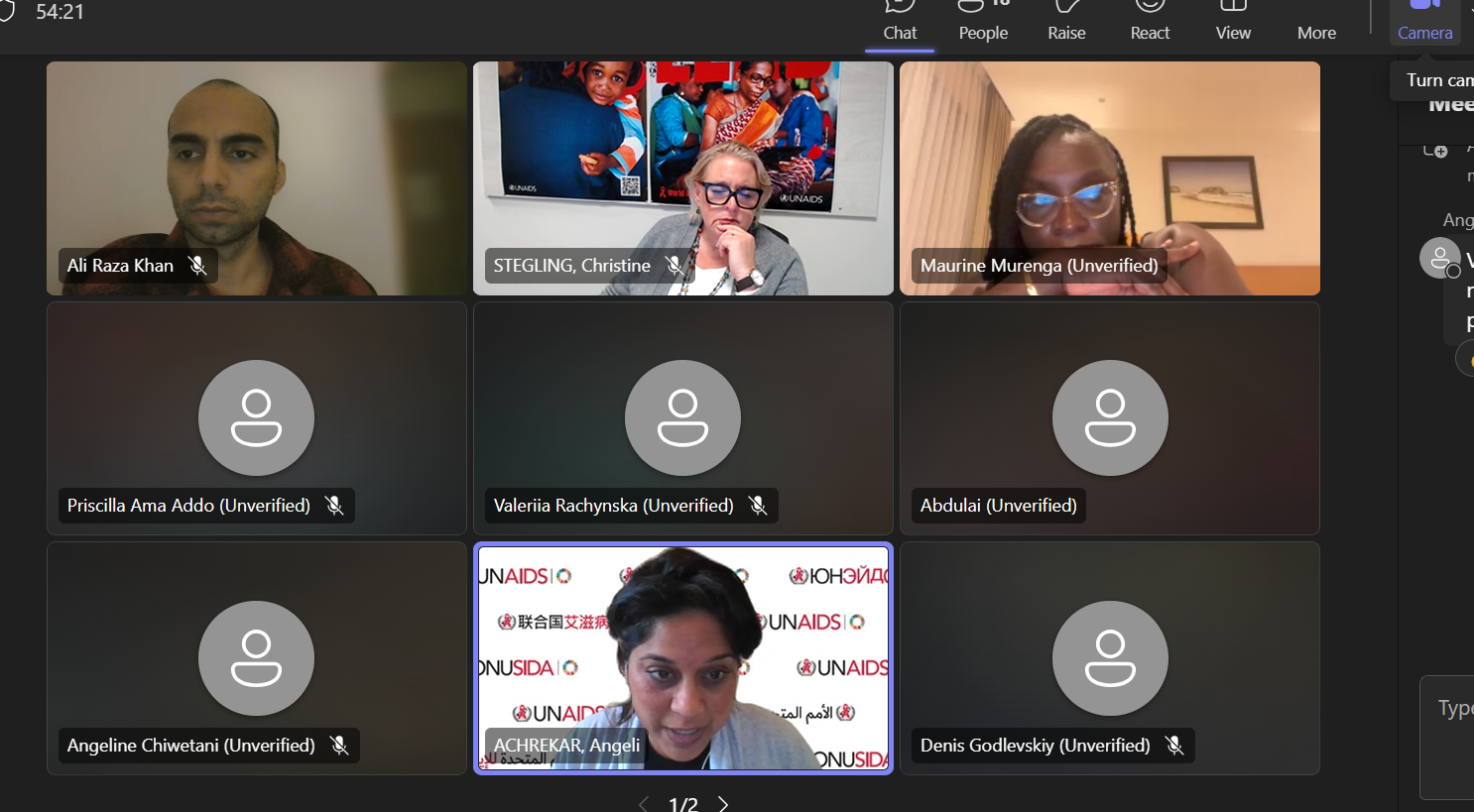Hello everyone, Ali Raza Khan here. As an HIV-positive gay activist and the founder of Pride Pakistan, I am dedicated to advocating for the rights and well-being of individuals living with HIV. Today, I had the privilege of meeting with key members of the UNAIDS team, including Angeli Achrekar, Deputy Executive Director for the Programme, and Christine Stegling, Deputy Executive Director for Policy, Advocacy and Knowledge. Alongside other members of the Communities Delegation to the Board of the Global Fund, we engaged in an essential discussion about the upcoming Global Fund 52nd board meeting in Malawi’s capital next week.
The Dire Consequences of Reduced HIV Funding
Our discussion highlighted some alarming data from UNAIDS. A reduction in HIV funding could lead to 1.3 million deaths in 12 countries. This stark statistic underpins our grave concerns about the potential regression in our progress against the HIV epidemic. Despite significant advances, there are still 9.3 million people in need of treatment and 1.3 million new infections globally each year. The situation is particularly dire for key populations such as children, adolescent girls, young women, and other marginalized groups who continue to suffer the most.

Innovations in HIV Treatment and Prevention
We also discussed the importance of embracing new, game-changing innovations in the HIV response. One such innovation is the advent of long-acting injectables for HIV prevention. These new treatments could be as close as we’ve ever been to an effective HIV vaccine, with nearly 100% efficacy in reducing new infections. However, without adequate funding and support from the Global Fund, these innovations may not reach the populations that need them most.
The Broader Impact on Health Systems
Our conversation extended to the broader implications of diminished HIV funding. The HIV response has significantly strengthened health systems worldwide, from lab infrastructures to community health workers and supply chain systems. These systems, which have also been critical in responding to other health crises like Ebola, are at risk if HIV funding is cut. Integration of HIV services with TB and family planning initiatives has already shown positive outcomes, and continuing this integration is crucial.
The Critical Role of Community Systems
The Global Fund’s support for community systems and human rights protection is integral to ensuring these biomedical innovations reach those in need. A shift away from HIV funding could exacerbate inequalities and make addressing human rights and gender inequalities even more challenging. Communities play a vital role in the HIV response, and their involvement is essential for maintaining progress and ensuring that no one is left behind.

Our Commitment Moving Forward
The UNAIDS team reiterated their commitment to providing any data or support we need as we prepare for our board interventions. As part of the Communities Delegation, we will continue to fight for sustained HIV funding and advocate for the populations most at risk. We are at a critical juncture where the decisions made can significantly impact the future of the HIV response and the lives of millions.
This meeting reinforced the urgency of our mission. We must continue to advocate fiercely for the resources and support needed to combat HIV. I remain committed to this cause and will continue to work towards ensuring that every individual living with HIV has access to the treatment and care they deserve.
Stay tuned for more updates from the Global Fund 52nd board meeting and our ongoing efforts to secure a brighter future for all. 🌍❤️

